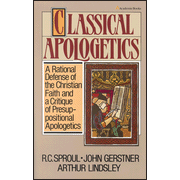The Reformed Doctrine of Predestination Chapter XXVIII- Calvinism in History
The Reformed Doctrine Of Predestination
Chapter XXVIII
CALVINISM IN HISTORY
4. Calvinism in Scotland
The best way to discover the practical fruits of a system of religion is to examine a people or a country in which for generations that system has held undisputed sway. In making such a test of Roman Catholicism we turn to some country like Spain, Italy, Colombia, or Mexico. There, in the religious and political life of the people, we see the effects of the system. Applying the same test to Calvinism we are able to point to one country in which Calvinism has long been practically the only religion, and that country is Scotland. McFetridge tells us that before Calvinism reached Scotland, “gross darkness covered the land and brooded like an eternal nightmare upon all the faculties of the people.”8 “When Calvinism reached the Scotch people,” says Smith, “they were vassals of the Romish church, priest-ridden, ignorant, wretched, degraded in body, mind, and morals. Buckle describes them as ‘filthy in their persons and in their homes,’ ‘poor and miserable,’ ‘excessively ignorant and exceedingly superstitious,’ — ‘with superstition ingrained into their characters.’ Marvelous was the transformation when the great doctrines learned by Knox from the Bible in Scotland and more thoroughly at Geneva while sitting at the feet of Calvin, flashed in upon their minds. It was like the sun arising at midnight . . . Knox made Calvinism the religion of Scotland, and Calvinism made Scotland the moral standard for the world. It is certainly a significant fact that in that country where there is the most of Calvinism there should be the least of crime; that of all the people of the world today that nation which is confessedly the most moral is also the most thoroughly Calvinistic; that in that land where Calvinism has had supremest sway individual and national morality has reached its loftiest level.”9 Says Carlyle, “This that Knox did for his nation we may really call a resurrection as from death.” “John Knox,” says Froude, “was the one man without whom Scotland as the modern world has known it, would have had no existence.”
In a very real sense the Presbyterian Church of Scotland is the daughter of the Reformed Church of Geneva. The Reformation in Scotland, though coming some time later, was far more consistent and radical than in England, and it resulted in the establishment of a Calvinistic Presbyterianism in which Christ alone was recognized as the head of the Church.
It is, of course, an easy matter to pick out the one man who in the hands of Providence was the principal instrument in the reformation of Scotland. That man was John Knox. It was he who planted the germs of religious and civil liberty and who revolutionized society. To him the Scotch owe their national existence. “Knox was the greatest of Scotsmen, as Luther the greatest of Germans,” says Philip Schaff.
“The hero of the Scotch Reformation,” says Schaff, “though four years older than Calvin, sat humbly at his feet and became more Calvinistic than Calvin. John Knox spent the five years of his exile (1554-1559), during the reign of Bloody Mary, mostly at Geneva, and found there ‘the most perfect school of Christ that ever was since the days of the Apostles.’ After that model he led the Scotch people, with dauntless courage and energy, from mediaeval semi-barbarism into the light of modern civilization, and acquired a name which, next to those of Luther, Zwingli, and Calvin, is the greatest in the history of the Protestant Reformation.”10
“No grander figure,” says Froude, “can be found in the entire history of the Reformation in this island than that of Knox …. The time has come when English history may do justice to one but for whom the Reformation would have been overthrown among ourselves; for the spirit which Knox created saved Scotland; and if Scotland had been Catholic again, neither the wisdom of Elizabeth’s ministers, nor the teaching of her bishops, nor her own chicaneries, would have preserved England from revolution. He was the voice which taught the peasant of the Lothians that he was a free man, the equal in the sight of God with the proudest peer or prelate that had trampled on his forefathers. He was the antagonist whom Mary Stuart could not soften nor Maitland deceive; he it was that raised the poor commons of his country into a stern and rugged people, who might be hard, narrow, superstitious and fanatical, but who nevertheless, were men whom neither king, noble nor priest could force again to submit to tyranny. And his reward has been the ingratitude of those who should most have done honor to his memory.”11
The early Scotch reformed theology was based on the predestinarian principle. Knox had gotten his theology directly from Calvin in Geneva, and his chief theological work was his treatise on Predestination, which was a keen, forcible and unflinching polemic against loose views which were becoming widespread in England and elsewhere. During the seventeenth and eighteenth centuries topics such as predestination, election, reprobation, the extent and value of the atonement, the perseverance of the saints, were the absorbing interest of the Scotch peasantry. From that land those doctrines spread southward into parts of England and Ireland and across the Atlantic to the west. In a very real sense Scotland can be called the “Mother Country of modern Presbyterianism.”
Loraine Boettner- The Reformed Doctrine of Predestination












Recent Comments